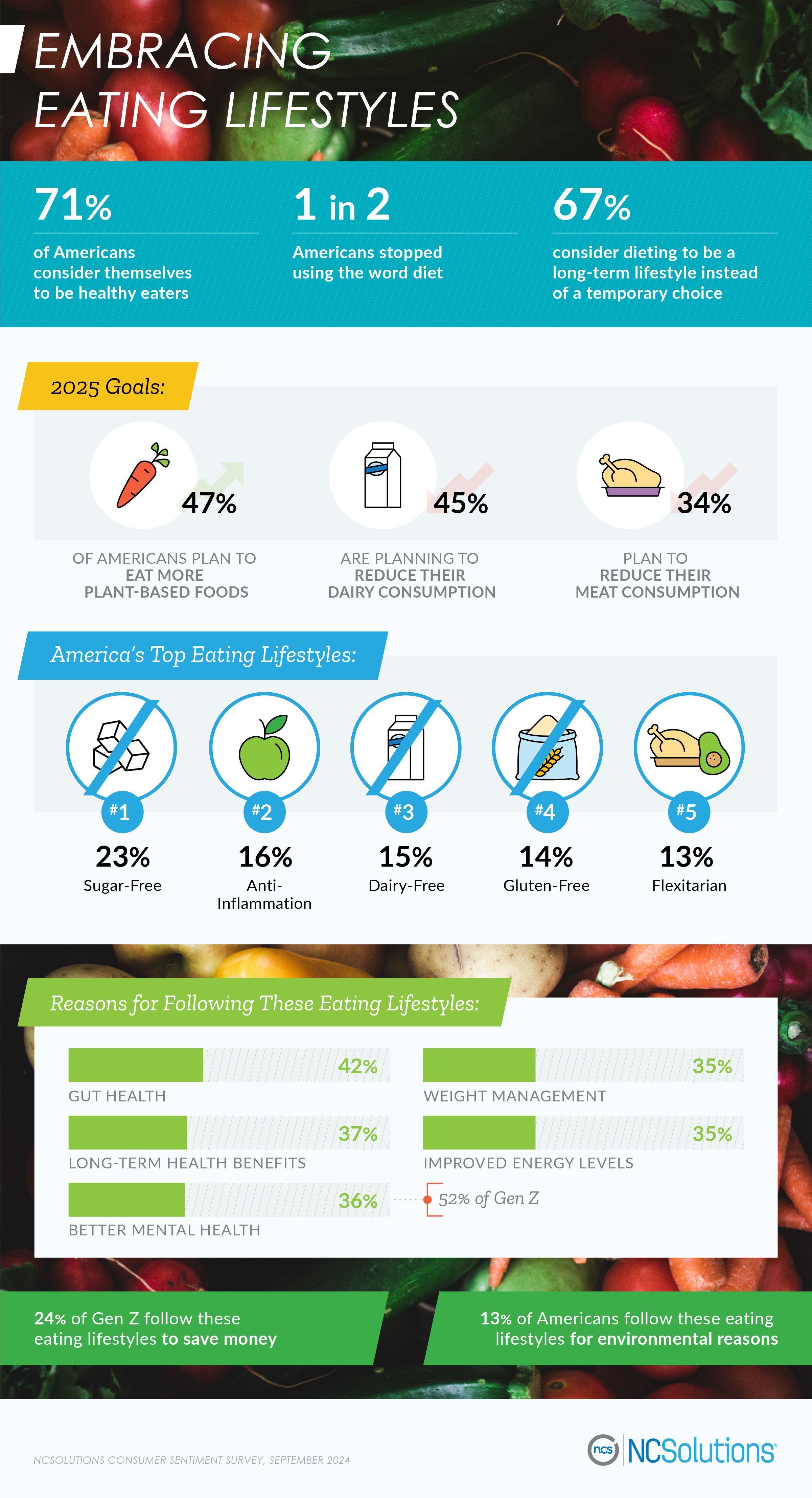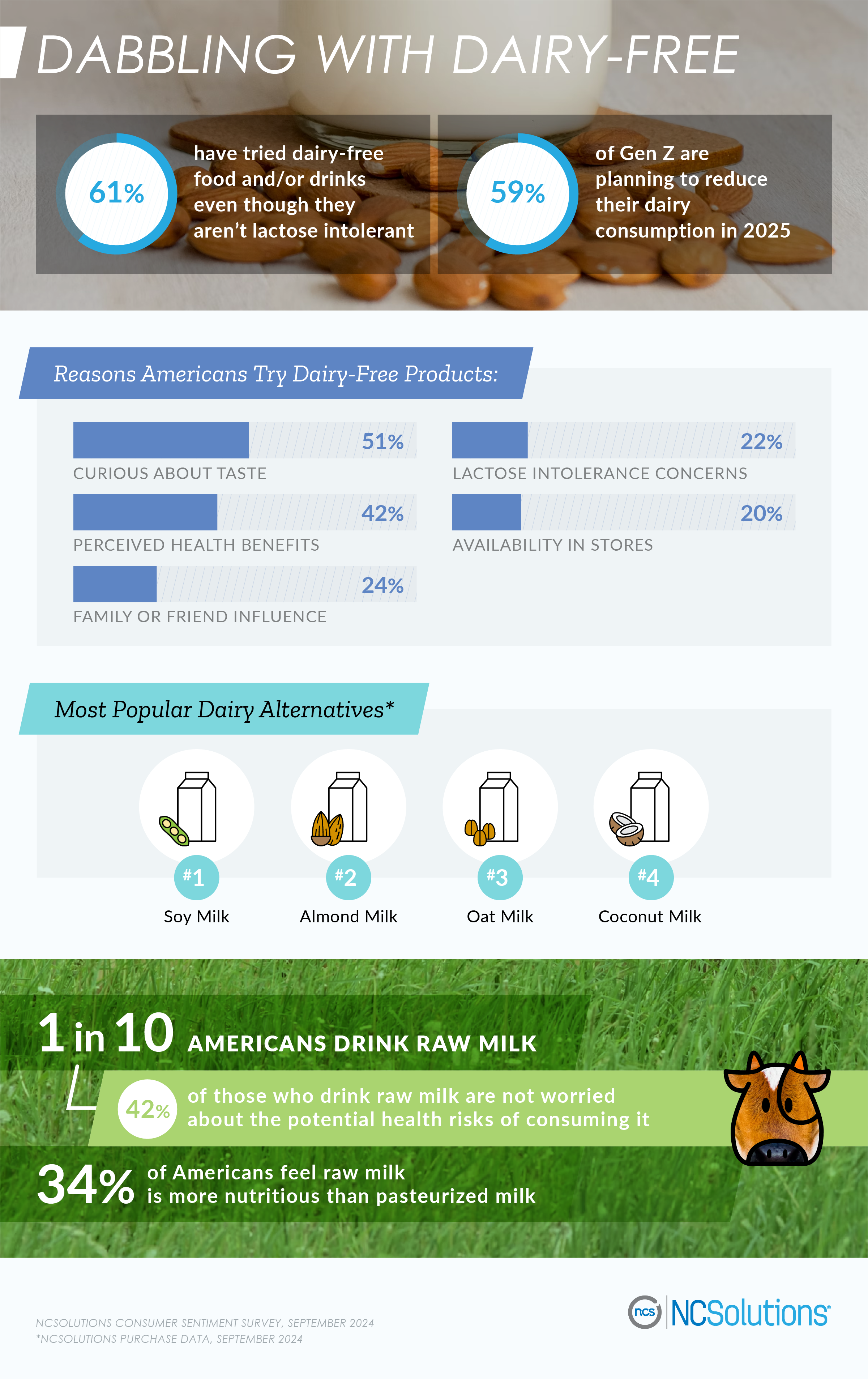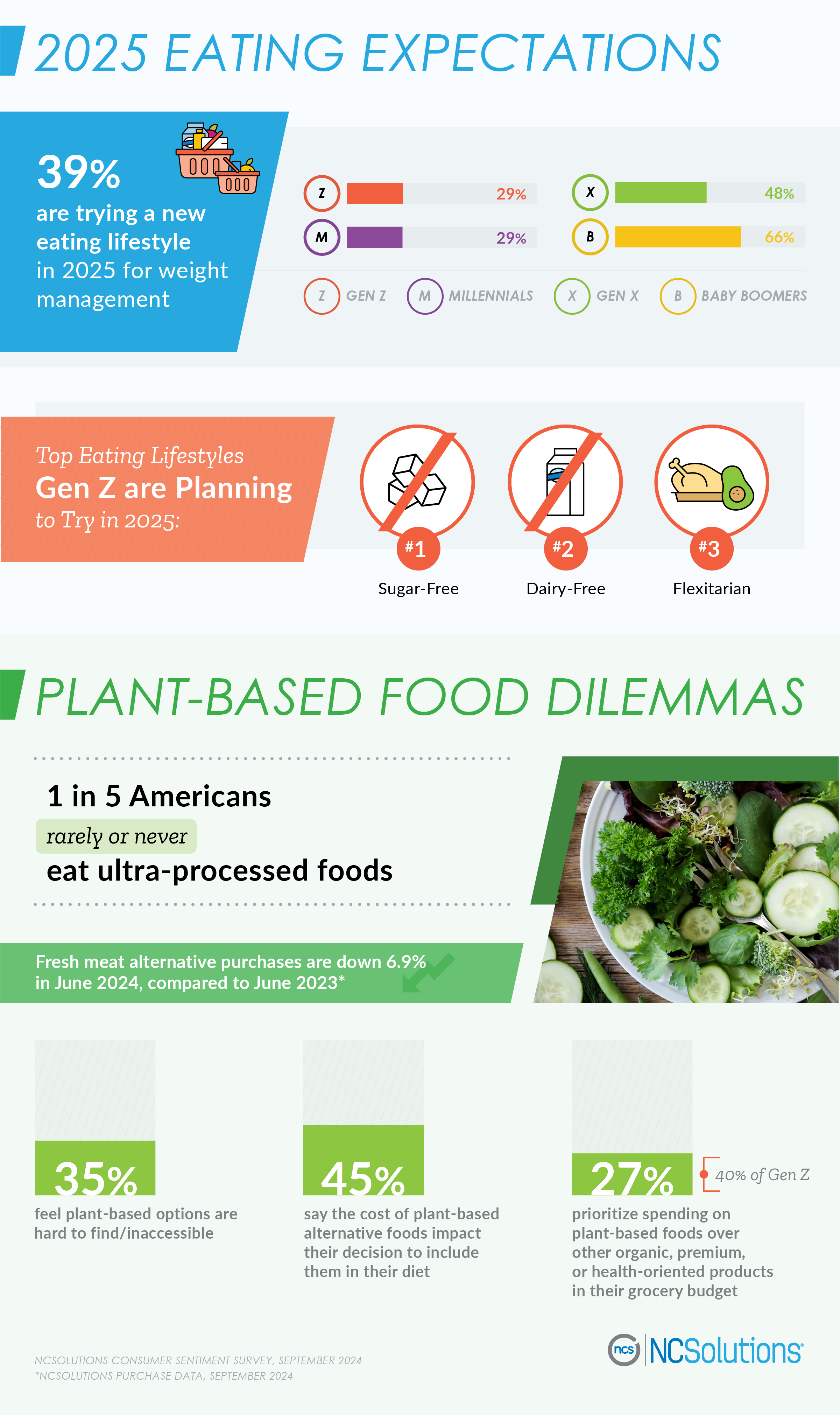It’s Not a Diet, It’s a Lifestyle: America’s New Way of Eating
47% Plan to Eat More Plant-Based Foods in 2025
The new year always comes with a renewed focus on personal health and wellness, especially when it comes to food and drinks. However, diet culture appears to be changing, especially in recent years. Rather than focusing on dieting, the new trend involves a fresh focus on certain lifestyles, and the foods that support them.
In a new consumer sentiment survey of 1,000 respondents, half shared they’ve stopped using the word diet completely, and 67% consider dieting to be a long-term lifestyle instead of a temporary choice. This may be a reason Americans are embracing eating lifestyles with a focus on plant-based foods that provide unique dairy-free and meat-free options.
Plant-Based Eating Habits

Plant-based eating is a dietary lifestyle that focuses mainly on plants, but rather than being fully vegan or vegetarian, people who eat plant-based generally eat meat and dairy on occasion. It’s sometimes referred to as being a flexitarian. In 2025, nearly half (47%) of Americans plan to eat more plant-based foods, 45% are planning to reduce their dairy consumption, and 34% are planning to cut back on their meat consumption.
Currently, the top five eating lifestyles Americans follow are:
- Sugar-Free
- Anti-Inflammation
- Dairy-Free
- Gluten-Free
- Flexitarian
Physical and mental health are main motivators for Americans following these dietary lifestyles. Over one in three (36%) eat this way for better mental health. For Gen Z, that number is even higher, at 52%. Of course, 35% say they also follow these eating lifestyles for weight management. Americans are also becoming more cognizant of what processed foods they’re putting into their body. One in five Americans rarely or never eat ultra-processed foods.
Top 5 Reasons Americans Try Dairy-Free Products

Recently, dairy-free products have become incredibly popular, even for Americans who aren’t vegan or lactose intolerant. Over three in five (61%) have tried dairy-free food and/or drinks even though they aren’t lactose intolerant. Gen Z appears to be leading the way with this trend since 59% are planning to reduce their dairy consumption in 2025.
The top reason people try these dairy-free products is curiosity. People just want to know what it tastes like. The perceived health benefits and influence from family or friends are the second and third reasons for trying some dairy-free options. According to NCSolutions purchase data from September 2024, these are the top-ranked dairy alternatives Americans are buying:
- Soy Milk
- Almond Milk
- Oat Milk
- Coconut Milk
Data insights show soy milk purchases are up 2.9% in June 2024 compared to June 2023, while almond milk purchases are up 2.5% for that same time period.
On the opposite spectrum, there has been a trend around consuming raw milk, or milk that is not pasteurized. Our survey found one in 10 Americans are drinking raw milk. Of those, 42% are not worried about the potential health risks of consuming it despite the fact the CDC warns drinking raw milk can lead to serious health risks.
2025 Eating Plans: Declining Interest in Meat Alternatives

While long-term health benefits are a major focus of these eating lifestyles, weight management is still an important cause for many Americans. Nearly two in five Americans are trying a new eating lifestyle in 2025 for weight management, and baby boomers are leading the charge with 66% making this change to address their weight.
While Americans are planning to cut back on how much meat they eat in 2025, they’re not necessarily purchasing meat alternatives. NCSolutions purchase data show purchases of fresh meat alternatives are down 6.9% in June 2024 compared to June 2023.
Survey statistics show that 35% of Americans feel plant-based options are hard to find or inaccessible, and 45% say the cost of plant-based alternative foods impacts their decision to include them in their diet. Some are willing to give up aspects of their food to make sure they have plant-based items on their plates. Two in five Gen Z prioritize spending on plant-based foods over other organic, premium, or health-oriented products compared to 27% of Americans.
With a growing emphasis on wellness, this research uncovers the healthy eating lifestyles consumers are exploring as part of their health journey. For CPG brands, these insights pull back the curtain on the different unique eating habits people are adopting, whether it’s plant-based, dairy-free, vegan, or others. Your brand can be a leader and guide consumers who are looking to make dietary changes for their health not just for the new year, but for the rest of their lives.
Methodology
The consumer sentiment survey of 1,076 Americans was commissioned by NCSolutions in September 2024 and was made up of U.S. adults ages 18+, who were asked about their eating habits and preferences. Results were weighted to be representative of the U.S. population by age, gender, region, ethnicity, marital status, education level, and household income.
For media inquiries, please contact ncspress@ncsolutions.com.
Fair Use
When using this data and research, please attribute by linking to this study and citing NCSolutions.


